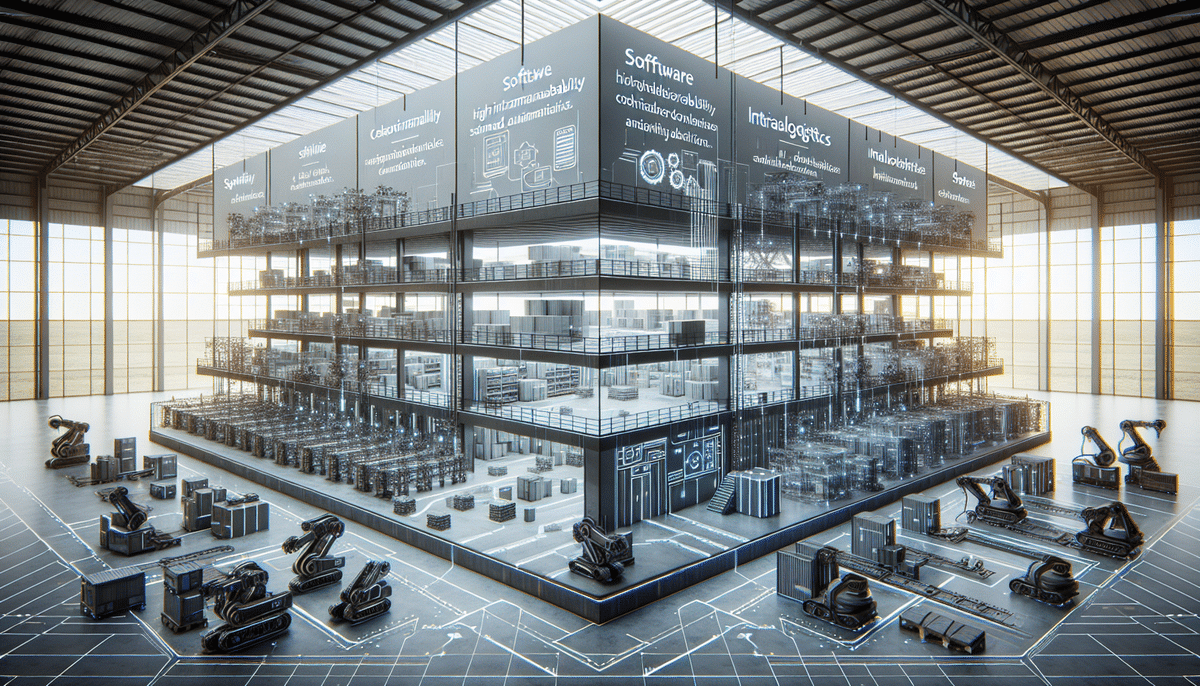Comparison of 6 River Systems (Shopify) and Swisslog Warehouse Management Systems
Introduction
Choosing the right warehouse management system (WMS) is crucial for optimizing your warehouse operations. Two leading solutions in the market are 6 River Systems (now part of Shopify) and Swisslog. Both offer a range of features aimed at enhancing efficiency and productivity, but they cater to different business needs. This article provides an in-depth analysis of these two systems to help you determine which best fits your business requirements.
Company Backgrounds
6 River Systems
6 River Systems was founded in 2015 by former executives of Kiva Systems, a company known for pioneering warehouse robotics before being acquired by Amazon. In 2019, Shopify acquired 6 River Systems to integrate advanced robotics and automation into its fulfillment network. The company's flagship product, Swift, is a mobile robot designed to collaborate with human workers, enhancing order fulfillment processes.
Swisslog
Swisslog has a rich history dating back to 1900, originally as a manufacturer of electrical equipment. Over the decades, Swisslog has evolved into a global leader in automation solutions for various industries, including logistics, healthcare, and manufacturing. Their WMS solutions are renowned for their scalability and ability to handle complex warehouse operations through advanced automation technologies.
Key Features Comparison
6 River Systems Features
- Collaborative Robots: Swift robots work alongside human workers to assist in picking, packing, and transporting items.
- Real-Time Order Tracking: Provides up-to-the-minute visibility into order status and inventory levels.
- Inventory Management: Efficiently manages stock levels, reducing the chances of overstocking or stockouts.
- User-Friendly Interface: Intuitive design ensures easy adoption and minimal training for staff.
- Data-Driven Insights: Robust reporting tools help managers make informed decisions based on real-time data.
Swisslog Features
- Automated Storage and Retrieval Systems (AS/RS): Highly automated systems that manage inventory with minimal human intervention.
- Complex Order Processing: Capable of handling wave picking, batch processing, and other complex tasks.
- Customization Options: Tailored solutions to meet the specific needs of diverse business operations.
- Scalability: Systems can easily scale to accommodate growing business demands.
- Integration Capabilities: Seamlessly integrates with existing ERP and other management systems.
Pricing Analysis
When evaluating WMS solutions, pricing is a critical factor. 6 River Systems generally offers a more affordable entry point, making it an attractive option for small to mid-sized businesses. Its pricing model leverages automation to reduce labor costs, providing significant ROI through increased productivity. In contrast, Swisslog tends to be a higher-end solution with higher implementation and maintenance costs. However, Swisslog's advanced features and scalability may justify the investment for larger enterprises with complex operations.
According to Shopify's resources, businesses can achieve up to a 30% increase in order fulfillment rates with the implementation of 6 River Systems. Meanwhile, Swisslog's solutions have been shown to reduce order processing times by up to 40% in large-scale operations (Swisslog Resources).
Real-World Case Studies
Examining how these systems perform in real-world scenarios provides valuable insights:
6 River Systems Case Studies
- Cardinal Health: Implemented 6 River Systems to streamline their distribution centers, resulting in a 25% increase in productivity and a significant reduction in training time for new employees.
- SIMPLÍ Logistics: Leveraged 6RS's collaborative robots to enhance order fulfillment accuracy and speed, leading to improved customer satisfaction.
Swisslog Case Studies
- BMW: Utilized Swisslog's AS/RS to optimize their parts warehouse, achieving higher storage density and faster retrieval times.
- University Hospital of Zurich: Adopted Swisslog's automated pharmacy systems to improve medication management and reduce errors, ensuring better patient care.
Pros and Cons
6 River Systems
- Pros:
- Cost-effective for small to mid-sized warehouses.
- Easy to implement with minimal disruption.
- Enhances worker productivity through collaboration.
- Intuitive user interface reduces training time.
- Cons:
- Limited customization compared to larger systems.
- May not be suitable for extremely large or complex operations.
Swisslog
- Pros:
- Highly scalable and customizable.
- Advanced automation capabilities handle complex tasks.
- Proven track record with large enterprises.
- Comprehensive support and maintenance services.
- Cons:
- Higher initial investment and ongoing costs.
- Longer implementation periods.
Conclusion
Choosing between 6 River Systems and Swisslog depends largely on the specific needs and scale of your business. If you're a small to mid-sized warehouse seeking an affordable, easy-to-implement solution that enhances worker productivity, 6 River Systems is an excellent choice. Its collaborative robotics and user-friendly interface make it ideal for businesses looking to improve efficiency without significant upfront costs.
On the other hand, if you're managing a large-scale operation with complex workflows and require a highly customizable and scalable solution, Swisslog is the better option. Its advanced automation technologies and proven performance in diverse industries make it suitable for enterprises aiming to optimize their warehouse operations comprehensively.
Ultimately, it's essential to assess your business's current challenges, future growth plans, and budget constraints to make an informed decision. Both 6 River Systems and Swisslog offer robust solutions that can significantly enhance your warehouse management capabilities.
Future Developments
Looking ahead, both 6 River Systems and Swisslog are poised to continue innovating in the warehouse automation space. 6 River Systems may expand its robotics technology to further enhance collaboration between humans and machines, while Swisslog could integrate more AI-driven analytics to provide deeper insights into warehouse operations.
Staying informed about these developments will ensure that your chosen WMS remains at the forefront of efficiency and productivity as your business evolves.








